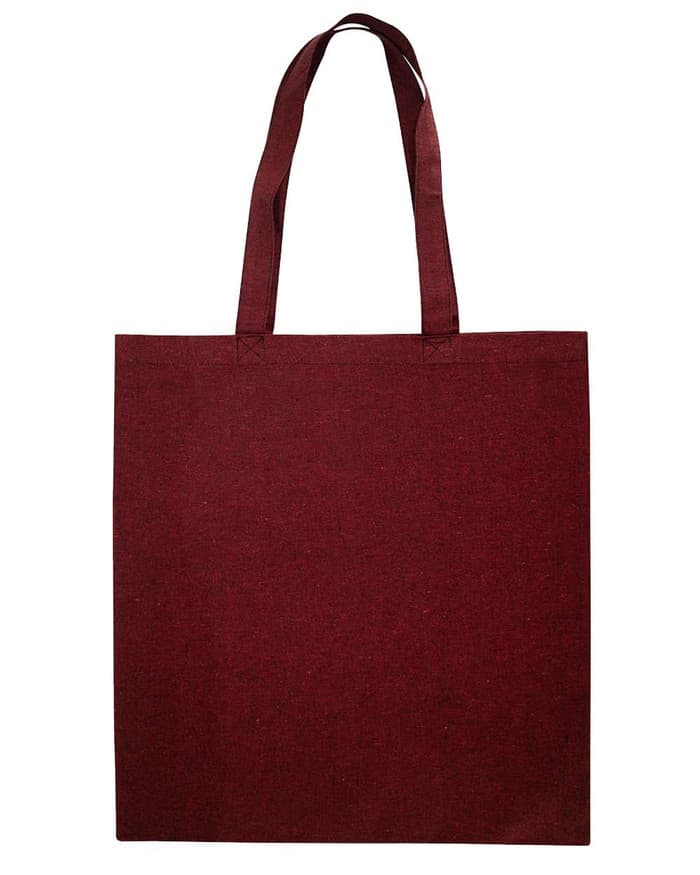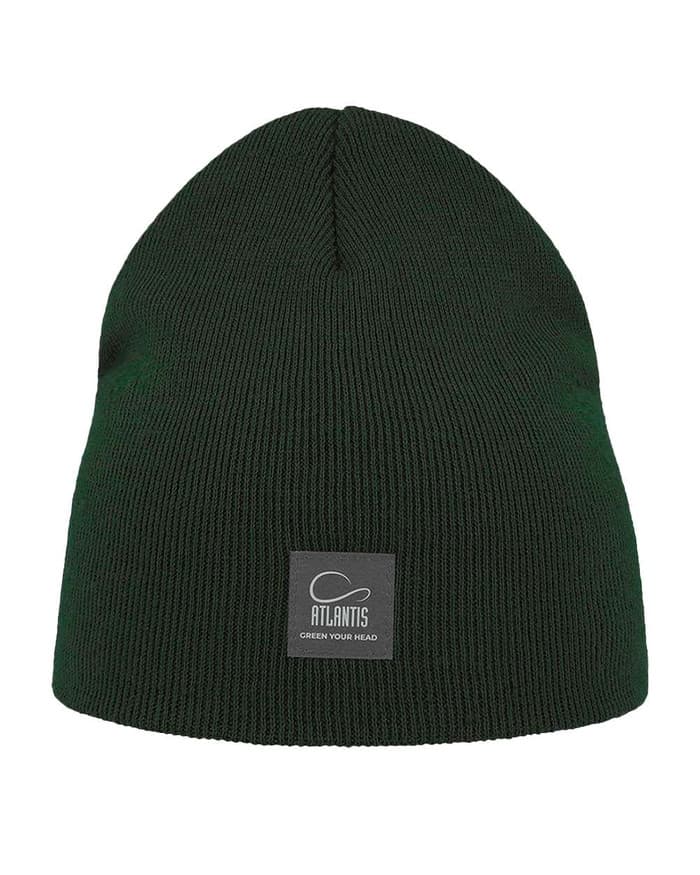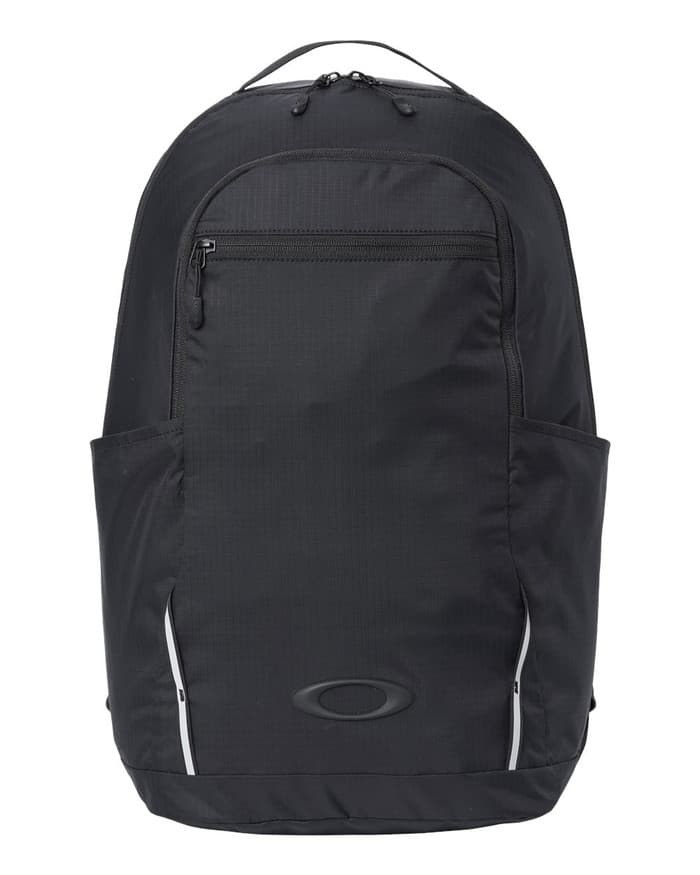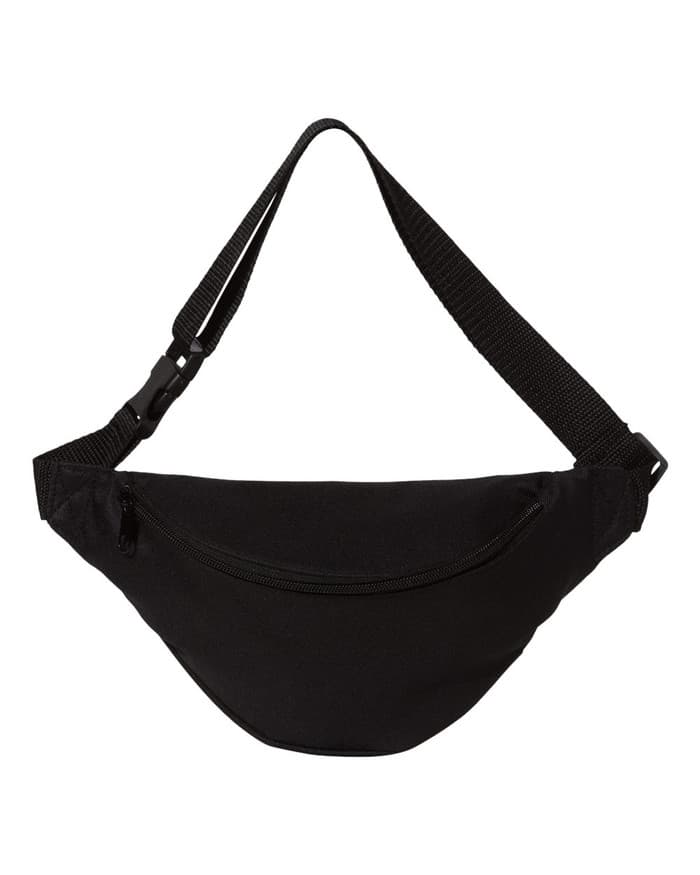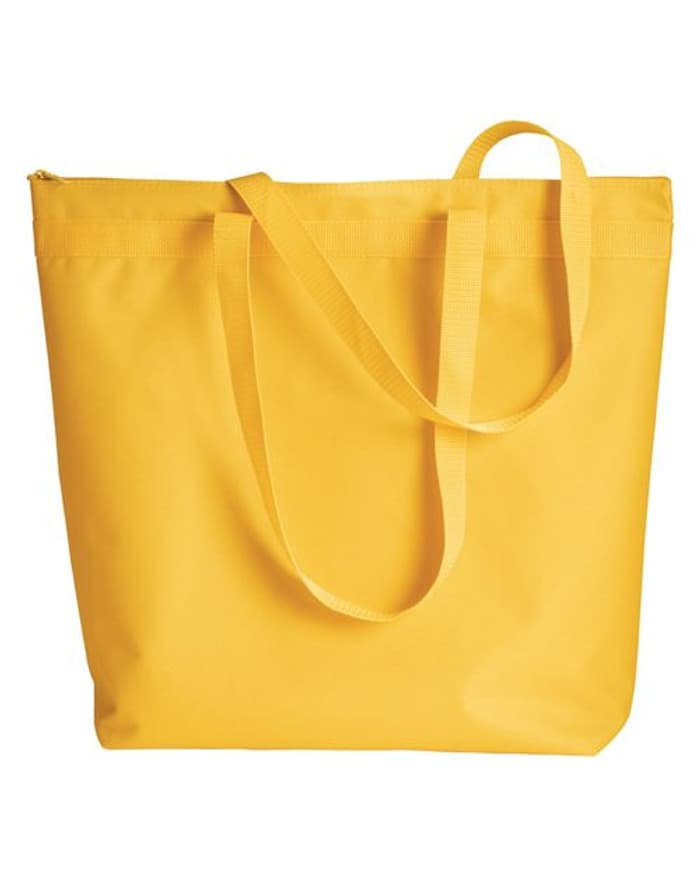
Zero Waste Promotional Items: 2024 Collection
We can all agree that most promotional items end up in landfills, representing wasted resources and needless environmental impact.
But what if I told you that with a bit of planning, you can access a world of zero waste promotional items that make great branding tools while honoring ecological limits?
In this guide, you'll discover the essential considerations for selecting sustainable custom merchandise, from materials to manufacturing partners and beyond. You'll also find real-world examples and inspiration to integrate zero waste principles into your next promotional campaign.
8 Best Eco-Friendly Promotional Items
Promotional items are a powerful marketing tool, but many common items like plastic pens, tote bags, and tech accessories create unnecessary waste. The zero waste movement offers insightful principles for more sustainable promotional products that resonate with today's eco-conscious consumers.
Here are our top 8 zero-waste promotional items.
1. OAD Economical Recycled Sport Pack
This zero waste drawstring is created with 75% recycled cotton and 25% recycled polyester, minimizing waste and preserving resources. Part of the proceeds go to nonprofit organizations, boosting your brand's social responsibility. Product page.
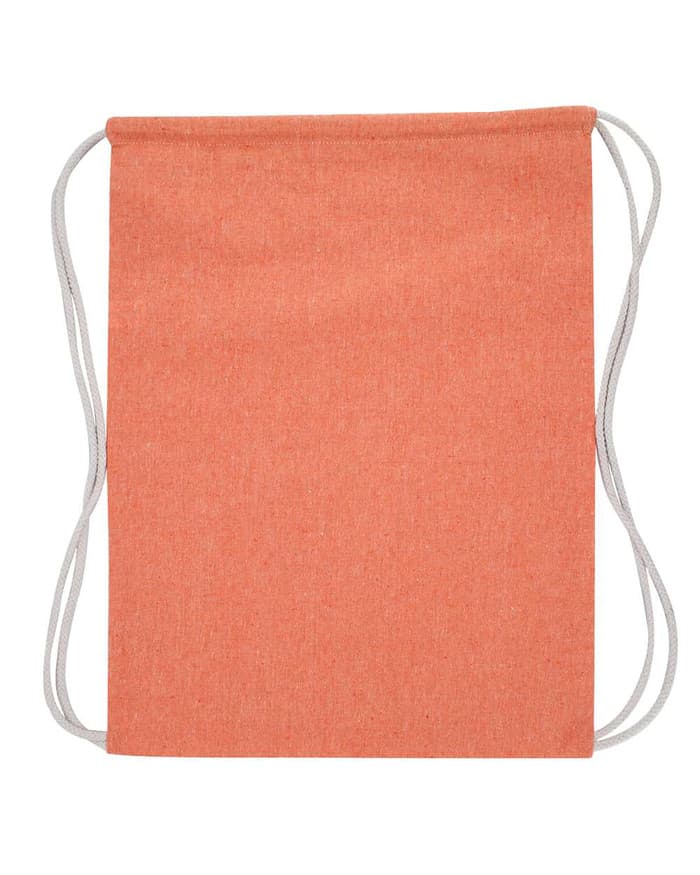 2. Liberty Bags Nicole Recycled Tote
2. Liberty Bags Nicole Recycled Tote
Made with 75% recycled cotton and 25% recycled polyester, this zero waste promotional tote bag supports environmental sustainability while being both practical and stylish. Product page.
3. Atlantis Headwear Sustainable Beanie
Consists of 50% recycled polyester, with each beanie repurposing half a plastic bottle, significantly cutting down on landfill waste and supporting a greener environment. Product link.
4. Oakley 28L Sport Backpack
This zero-waste promotional backpack is crafted from 100% recycled polyester, supporting eco-friendly material use and ethical manufacturing. Features spacious side pockets and a large front zipper pocket for easy access to essentials. Padded shoulder straps and a mesh-insert back panel ensure breathability and comfort for long wear. Product link.
5. Liberty Bags That's So 90s Fanny Pack
Eco-conscious with 50% recycled material, promoting sustainability. Multiple zippered compartments keep your essentials secure and well-organized, making it a practical choice for everyday use. Product link.
6. Liberty Bags Recycled 18" Small Duffel Bag
Made from 50% recycled materials, enhancing environmental sustainability and reducing waste. The main compartment with a single zipper provides ample space for your essentials, simplifying packing and access. Supports charitable causes with a portion of proceeds donated to nonprofit organizations. Product link.
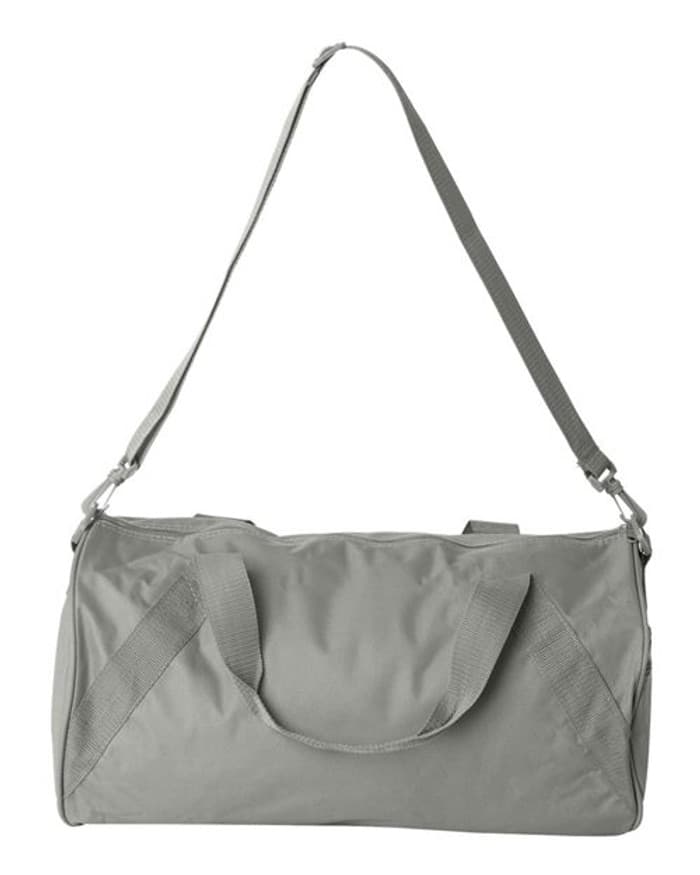 7. Liberty Bags Melody Large Tote
7. Liberty Bags Melody Large Tote
Constructed from 50% recycled material, promoting environmental sustainability. Features color-matched handles and a zippered closure, combining style with practicality. Product link.
8. Liberty Bags Recycled Cooler Bag
This cooler is made from 50% recycled material, encouraging sustainable practices. The aluminum foil lining keeps the contents cool and fresh. The single-zippered main compartment ensures easy access and secure storage. Product link.
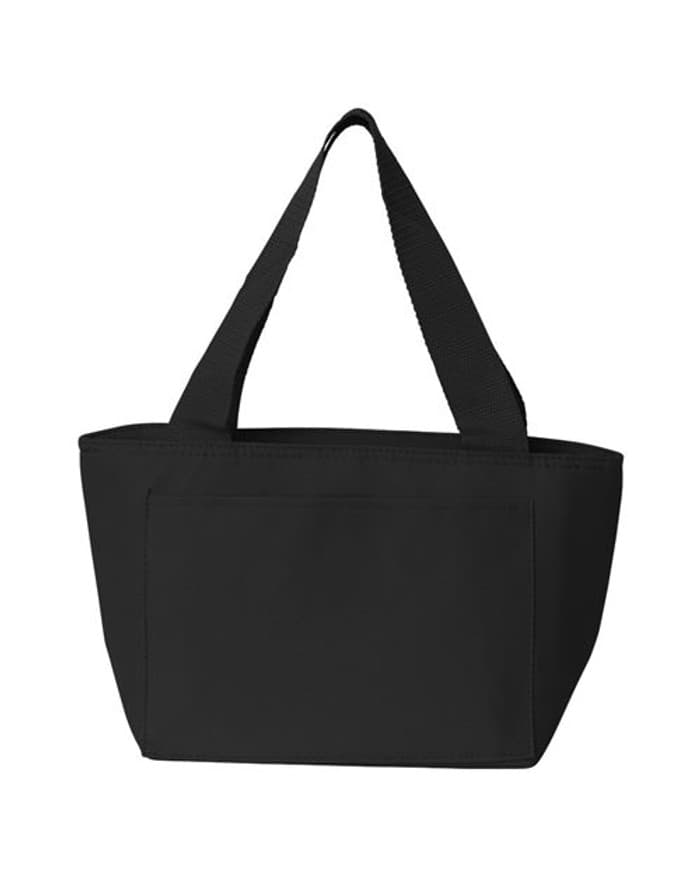 Introduction to Zero Waste Promotional Items
Introduction to Zero Waste Promotional Items
The zero waste philosophy emphasizes reducing consumption, reusing products, and recycling materials to eliminate waste being sent to landfills. Key tenets like avoiding single-use plastics and prioritizing durability are extremely relevant when selecting promotional merchandise.
Companies should evaluate the lifecycle impact of the promotional items they distribute and aim to select products made from renewable, recyclable, or biodegradable materials. For example, swapping out plastic pens for recycled bamboo pens dramatically reduces environmental impact.
Setting corporate sustainability goals around promotional products educates both employees and consumers about adopting zero-waste practices in their everyday lives.
The Business Case for Sustainable Promotional Products
Studies show that consumers actively support brands with ethical values and environmental commitments. Zero waste promotional merchandise enables companies to demonstrate their sustainability promises in an authentic, tangible way.
Employees are also passionate about corporate social responsibility. Gifting eco-friendly branded merchandise boosts internal brand affinity and pride among teams.
Many renewable materials like recycled paper and plant-based plastics have achieved comparable quality and durability to traditional products. Their costs continue to decrease each year, making zero-waste promotional items even more affordable.
Setting Realistic Sustainability Goals with Promotional Merchandise
Begin by taking stock of current promotional products and identifying areas to reduce manufacturing waste through materials, production methods, customization options, and packaging. Seek quantity discounts for popular eco-friendly items like recycled pens and reusable water bottles to make sustainable options more economical.
Gradually phasing out wasteful promotional items instead of an immediate switch prevents inventory write-offs and eases budget pressures. Consider offsetting part of the cost through corporate social responsibility funds.
Measure success based on year-over-year reduction in plastic usage and partner with vendors aligned on sustainability objectives. Promoting achievements internally spotlights the company’s commitment to zero waste promotional merchandise.
Selecting Materials for Sustainable Custom Merchandise
Promotional items made from sustainable materials can help reduce waste while effectively promoting a brand. When selecting materials, it's important to consider their environmental impact across the full product lifecycle.
Choosing Biodegradable and Compostable Materials
Natural fibers like cotton, bamboo, hemp, and cork enable items to fully biodegrade with minimal processing. These materials break down naturally, returning nutrients to the soil.
-
Cotton is a renewable and biodegradable fiber that can be composted. Organic cotton has less environmental impact since it is grown without synthetic chemicals.
-
Bamboo is a fast-growing grass that requires few pesticides and fertilizers. Bamboo fabric biodegrades relatively quickly.
-
Hemp is durable, absorbent, and antimicrobial. It is pest-resistant and requires minimal water and fertilizers to grow.
-
Cork is harvested from tree bark. It is natural, renewable, and recyclable. Cork biodegrades readily since it contains suberin.
The biodegradability of these natural materials makes them excellent choices for eco-friendly merchandise. Their decomposition replenishes soil, completing their lifecycle sustainably.
The Benefits of Recyclable Metals and Plastics
While biodegradable materials break down naturally, some sustainable materials like metals and certain plastics can be continually recycled.
-
Aluminum can be recycled repeatedly with no loss in quality. Recycled aluminum saves over 90% of the energy required for virgin aluminum production.
-
Steel is the world's most recycled material. It can be reprocessed into new steel products indefinitely.
-
rPET stands for recycled polyethylene terephthalate, which is made from recycled plastic bottles and containers. It has the same durability and longevity as virgin PET.
-
PET plastic is lightweight, shatter-resistant, and 100% recyclable. PET bottles can be turned into polyester clothing, carpet, and new bottles.
These recyclable materials conserve resources by reducing the need for additional raw material extraction. Their ability to be remade into new products gives them an extended lifecycle.
Evaluating the Lifecycle of Sustainable Materials
The sustainability of a material depends both on its origin and its afterlife. Lifecycle analysis examines environmental impact from raw material extraction through disposal.
Key considerations when evaluating material lifecycles:
-
Renewability: Can the material be grown or harvested faster than it is depleted?
-
Reusability: How many times can the material be reused or recycled before becoming waste?
-
Biodegradability: Does the material break down naturally without producing toxins?
-
Energy consumption: How much energy is used to obtain, manufacture, and transport the material?
-
Carbon footprint: How much greenhouse gas is emitted across its lifecycle?
Selecting custom merchandise materials with the lowest lifecycle impacts minimizes ecological harm. This comprehensive approach ensures promotions don't come at the cost of sustainability.
Partnering with Sustainable Merchandise Companies
Promotional items can generate immense value, but their production often comes at an environmental cost. Selecting suppliers committed to sustainability is key to ensuring your merchandising efforts align with zero waste principles.
Criteria for Selecting Zero Waste Suppliers
When vetting potential suppliers, consider the following:
-
Materials used: Seek vendors utilizing recycled, organic, biodegradable materials. Ask about textile certifications supporting sustainability claims.
-
Production methods: Prioritize suppliers with energy/resource-efficient manufacturing processes and emissions reduction targets.
-
Commitment to circularity: Look for closed-loop production, repair/reuse programs, and end-of-life recycling.
-
Traceability and transparency: Suppliers should provide insight into their supply chain and component sourcing.
-
Certifications: Credible third-party certifications indicate meeting sustainability standards. Some key ones: GRS, RCS, FSC, C2C.
Building Relationships with Eco-Friendly Manufacturers
Cultivating partnerships with sustainable manufacturers enables:
-
Access to eco-materials and production methods
-
Customization support for reusable, recyclable designs
-
Oversight for aligning processes with your sustainability goals
-
Education on latest developments in ethical sourcing
Schedule facility tours, conduct supplier audits, and collaborate on new eco-innovations. These efforts foster shared accountability.
Certifications and Standards for Sustainable Suppliers
Some key certifications to look for when selecting merchandise partners include:
-
Global Recycled Standard (GRS): Verifies use of recycled materials and responsible production
-
Recycled Claim Standard (RCS): Tracks recycled content through the supply chain
-
Forest Stewardship Council (FSC): Ensures responsible forestry practices
-
Cradle to Cradle CertifiedTM (C2C): Indicates adoption of circular economy principles
Confirm suppliers carry relevant accreditations prioritizing sustainability. This supports efforts to deliver zero waste promotional items upholding ecological values.
sbb-itb-6f489d9
Designing Brand Identity with Zero Waste in Mind
Promotional products present a unique opportunity for brands to reinforce their identity and values through sustainable practices. By opting for zero waste merchandise, companies can make powerful statements about their commitments to the environment. However, incorporating green principles while maintaining brand integrity requires forethought and strategy.
Innovative Branding Techniques for Sustainable Products
Brands have several creative options for applying their visual identities to eco-friendly promotional items:
-
Reclaimed Materials: Using reclaimed wood, plastic, glass and metals allows brands to repurpose waste while showing their sustainability. Patagonia provides an excellent model with their recycled polyester shirts displaying bold, refined logos.
-
Minimalist Design: Simplistic branding with fewer colors and elements naturally lends itself to sustainability. This allows brands like Everlane to use fewer resources while highlighting their core icons and messages.
-
Natural Themed Graphics: Nature-inspired graphics like trees, landscapes or animals visually tie promotional products to environmental causes. Charities like the World Wildlife Fund integrate green themes with their panda logo on recycled tote bags.
Maintaining Brand Consistency with Eco-Friendly Materials
Brands can retain their visual identities across sustainable materials with clever solutions:
-
Adapt Color Palettes: Adjust Pantone colors to match the natural hues of recycled paper and fabrics. Then apply colors consistently on business cards, apparel graphics and packaging.
-
Standardize Graphic Treatments: Maintain signature typography, graphic shapes and photo filters when printing on alternative surfaces. This keeps the style cohesive.
-
Leverage Product Certifications: Prominently display certifications like "FSC Certified" or "Carbonfree® Product" to proudly signify eco-friendly authenticity.
Transparent Marketing of Zero Waste Initiatives
Promotional products present a platform for brands to directly showcase their sustainability credentials. This transparency is key for effectively spreading environmental commitments:
-
Clean Concise Messaging: Clearly communicate green attributes like "100% Recycled Plastic" or "Carbon Neutral Shipping" on products themselves.
-
QR Code Links: Embed links leading to pages elaborating on sustainability initiatives and product details for those interested.
-
Hashtag Campaigns: Launch hashtag campaigns like "#LessWaste" or "#EcoProgress" to start social conversations around a brand's zero waste efforts.
Eco-Friendly Merchandise Ideas and Inspiration
Presenting a range of creative and innovative eco-friendly merchandise ideas to inspire businesses looking to make the switch to zero waste promotional items.
Innovative Zero Waste Product Examples
Highlighting unique and successful zero waste promotional items that have captured the attention of consumers.
-
Reusable food containers made from sustainable materials like bamboo fiber are an innovative way to reduce waste from takeout while providing useful branded merchandise. Companies like Stitchi offer custom printed, reusable takeout containers that customers can reuse.
-
Sustainable apparel made from organic cotton, recycled materials, or ethically sourced fabrics make memorable giveaways. Consider T-shirts, hats, and bags produced sustainably and ethically.
-
Reusable water bottles and travel mugs made of stainless steel, glass, or other durable materials are popular eco-friendly items that see repeated use. Add your logo for long-lasting brand impressions.
-
Eco-friendly tech accessories like phone cases or laptop sleeves made of recycled plastic or plant-based materials align well with environmentally conscious customers.
Customizable Options for Zero Waste Merchandise
Exploring the possibilities for customization in zero waste products that allow for brand personalization.
Sustainable merchandise production allows for diverse customization techniques for applying branding elements without generating additional waste. Some options include:
-
Screen printing using water-based or plastisol inks directly onto fabric products like T-shirts, hats, and bags
-
Dye sublimation for full-color, photographic imprints embedded directly into products like mugs, mousepads, or puzzles
-
Debossing/Embossing by applying heat and pressure to leave raised or recessed logos on leather, wood, or paper products
-
Engraving through precision removal of material for branding metals, glass, and some plastics
When sourcing custom sustainable merchandise, prioritize suppliers focused on environmentally responsible production methods, such as:
-
Using organic, recycled, reclaimed, or other eco-conscious materials
-
Operating renewable energy powered facilities
-
Employing responsible manufacturing practices and fair labor standards
Trends in Sustainable Promotional Products
Examining current trends in sustainable promotional products that are gaining popularity in the market.
As customers increasingly demand corporate responsibility, quality sustainable merchandise has entered the mainstream. Current trends include:
-
Reusable bags made from recycled plastic bottles, organic cotton, jute, and other eco-friendly materials
-
Upcycled products repurposing used materials into unique branded merchandise
-
Ethical apparel produced sustainably using organic fibers and dyes
-
Ocean plastic products reclaiming and recycling post-consumer plastic waste from waterways
-
Carbon offsetting by donating to environmental causes to mitigate emissions
Smart businesses should stay up to date on these trends to select merchandise that aligns with customer values while making positive impacts. Highlighting sustainability commitments through promotional products also nurtures brand affinity.
Prioritizing zero waste does not mean sacrificing quality, variety, or branding potential. As innovative materials and responsible production practices gain ground, the possibilities for memorable and eco-friendly merchandise continue to expand.
Maximizing Impact with Zero Waste Promotional Campaigns
Promotional campaigns featuring zero waste merchandise can powerfully communicate a brand's commitment to sustainability while effectively engaging customers. By integrating eco-friendly giveaway items into broader marketing strategies and measuring campaign success, brands can maximize their positive impact.
Integrating Eco-Friendly Items into Marketing Strategies
-
Lead with purpose - showcase sustainability values upfront in campaigns
-
Complement other green initiatives - reinforce wider eco-friendly brand messaging
-
Multi-channel distribution - disperse through owned channels plus partners
-
Customer personalization - name, location, interests to boost relevance
-
Campaign branding - unify promotional items under a branded campaign identity
Measuring the Success of Zero Waste Campaigns
Key metrics to track success of zero waste promotional campaigns:
-
Customer satisfaction scores - gauge recipient enjoyment and brand sentiment
-
Referral traffic - monitor if campaign drives visitors to site or stores
-
Social media engagement - track reach, shares, comments sparked
-
Sales impact - analyze whether campaigns influence customer spend
Engaging Customers with Zero Waste Narratives
Storytelling tactics to boost customer engagement:
-
Share production methods - spotlights commitment from design to delivery
-
Feature maker stories - connects customers to people behind items
-
Highlight item end-of-life - inspires recipients to reuse or recycle
-
Encourage social sharing - provides content customers want to share
-
Reward eco-actions - further incentivizes sustainable behaviors
Thoughtful zero waste campaigns aligned to brand values can authentically connect with customers. By integrating items into broader marketing efforts, monitoring performance, and crafting compelling stories, brands can drive meaningful impact.
Conclusion: Embracing Zero Waste for Future Promotions
Reflecting on the Journey to Zero Waste Promotions
Transitioning to zero waste promotional strategies requires careful consideration of material sourcing, production methods, and lifecycle analysis to minimize environmental impact. By selecting reusable, recyclable, or compostable materials, businesses can reduce waste while still effectively branding and engaging customers.
The journey demands collaboration across teams - from designers and marketers who develop campaigns, to procurement specialists securing sustainable supplies. Leadership must also commit to these values for the long term.
Ultimately though, the effort pays dividends for the brand, the planet, and the next generation of customers.
The Long-Term Benefits of Sustainable Promotional Items
Adopting zero waste promotional items contributes to larger corporate sustainability goals around waste reduction and responsible sourcing. It also strengthens brand affinity with increasingly eco-conscious consumers.
Research shows that environmentally friendly products foster greater brand loyalty and customer retention over time. A sustainable approach to promotional items also reinforces a commitment to ethics and social responsibility.
As more companies join the movement, sustainable production scales up to meet demand. Collective action creates industry-wide change.
Next Steps for Companies Adopting Zero Waste Practices
For brands new to zero waste efforts, start by conducting an audit of current promotional items and campaigns. Assess waste levels, material types, and vendor policies. This establishes a sustainability baseline to improve on.
Also engage employees across functions to educate them on the environmental impacts of merchandise production and raise awareness on issues like greenwashing. Equipped with better knowledge, they can champion future initiatives.
Finally, partner with specialized sustainable merchandising platforms to tap into their product expertise, global supply chains, and impact-measurement capabilities. Leverage existing solutions to efficiently scale zero waste promotions.
The road ahead requires continuous incremental effort, but creates outsized long-term value.
